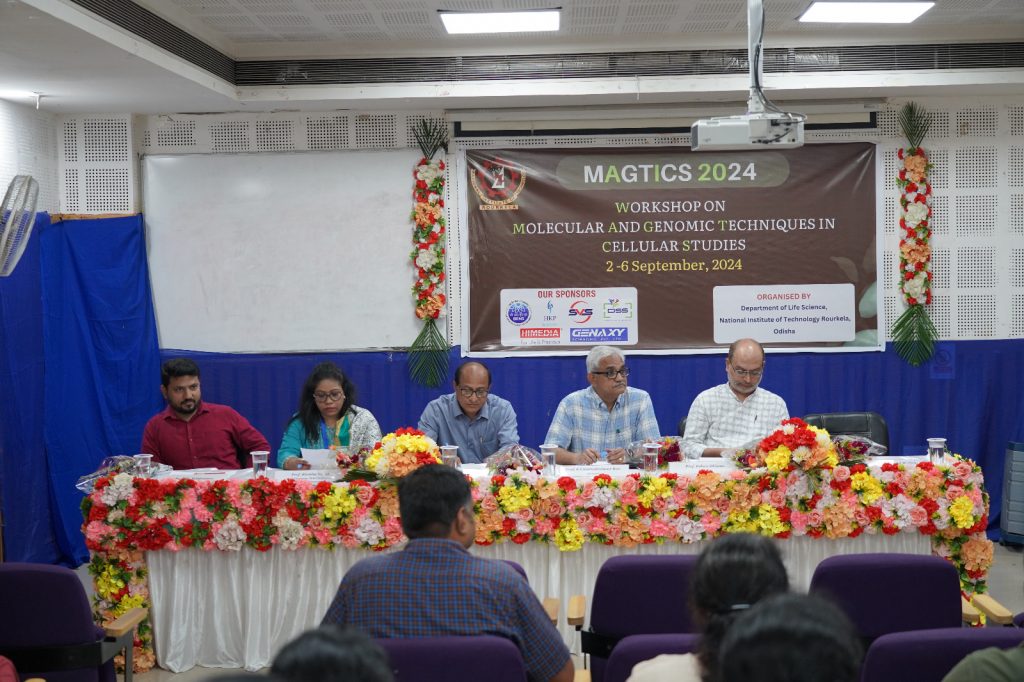Rourkela: A five-day interdisciplinary workshop titled “Molecular and Genomic Techniques in Cellular Studies (MAGTICS-2024)”, organized by RNAi Laboratory and Human Molecular Genetics Laboratory of the Department of Life Science at NIT Rourkela, was kicked off September 2. The workshop was sponsored by Board of Research in Nuclear Sciences (BRNS), Government of India, along with several leading biological companies. It has brought together top researchers and professionals, prominent scientists, and industry and medical experts who would provide lectures and hands-on exposure to participants on modern-day molecular research and their implications on human health. Bibekanand Mallick and M Srinivasan are the conveners of the workshop.
Welcoming the participants, Mallick said, “The workshop is designed to integrate cutting-edge tools and techniques from various disciplines, including molecular cell biology, molecular genetics, and genomics.” K Umamaheshwar Rao, Director of NIT, chief guest Bisnu Prasad Dash, Adjunct Professor of FM University, Rohan Dhiman, Registrar of NIT Rourkela and Bismita Nayak, Head of the Department of Life Science were also present. Emphasising the significance of biology & life sciences in improving human lives, Rao said, “I never imagined that a tiny virus-like Covid-19 could cause such disruption in our lives for nearly two years. Studies related to life sciences such as cellular studies can combat life-threatening viruses by identifying viral genes or by enabling targeted drug development etc.
Promoting more research in life sciences or biology and integrating modern-age technologies with it, is therefore essential.” Das said, “The interactions within cells are the essence of life, and understanding them has been enhanced by advances in high-end microscopy and molecular techniques. These technologies have improved our ability to explore cellular processes with unprecedented detail, opening new avenues for research and innovation in biology. ” Dhiman talked about the department’s state-of-the-art facilities, including confocal microscopy, flow cytometry, and RT-PCR, which contribute to high-impact research publications.
